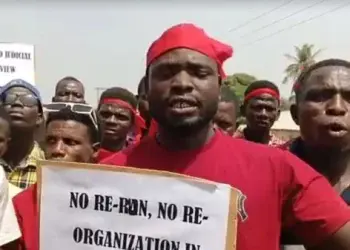The administration of President John Dramani Mahama has come under growing scrutiny for paying Members of the 8th Parliament (MPs) their ex-gratia for the 2021–2025 period while failing to extend the same constitutional entitlement to the former president, vice-president, members of the Council of State, ministers, deputy ministers, and other Article 71 officeholders.
The revelation has triggered public concern about transparency, fairness, and the selective implementation of constitutional provisions governing public remuneration.
MPs paid, executive left out
Although the exact date of payment remains unclear, Parliament has confirmed that its members, including the Speaker, have received their ex-gratia entitlements for the period under review. This was revealed in a response to a Right to Information (RTI) request filed by a Ghanaian citizen, Kofi Asare, on October 7, 2025.
Parliament’s reply, dated October 14, 2025, and signed by Deputy Clerk (LMS) Camillo Pwamang, stated that the House formally transmitted the approved determination of Article 71 emoluments from its 399th sitting on January 6, 2025, to the President on the same day.
However, the legislature clarified that it “has not received confirmation from either the Ministry of Finance or the Controller and Accountant-General’s Department (CAGD) regarding the implementation of the Article 71 Emolument determined by Parliament for the period January 2021 to January 2025” as it pertains to the executive branch.
The parliamentary response further noted that “Parliament has, however, received releases from the CAGD reflecting the emoluments determined by the President for the same period,” confirming that the legislative arm has been fully catered for, while the executive and the Council of State remain unpaid.
This confirmation has reignited the debate over the equitable treatment of constitutional officeholders and the level of transparency that has characterised the current administration’s financial dealings.
Presidency fails to respond to RTI request
In a related twist, President Mahama’s office has failed to respond to a formal RTI request seeking details on the implementation of the Article 71 emoluments for the 2021–2025 term, which corresponds to the second administration of former President Nana Addo Dankwa Akufo-Addo.
The request, submitted on October 7, 2025, asked for information regarding whether former members of the executive and the Council of State had received their constitutionally approved emoluments, the dates of such payments, and any supporting documentation from the Controller and Accountant-General’s Department.
Under Section 23(1) of the Right to Information Act, 2019 (Act 989), public institutions are required to respond to RTI applications within 14 days of receipt.
However, as of October 30, 2025 — 22 days after the application was received — the Office of the President had neither acknowledged nor replied. Following the lapse of the statutory response period, Mr. Asare filed for an internal review on October 24, 2025, citing the presidency’s failure to comply with legal requirements under Act 989.
Applicant challenges presidential silence
In his application for internal review, the citizen argued that the refusal to respond violated the constitutional right to information under Article 21(1)(f) of the 1992 Constitution and undermined the principles of transparency, accountability, and fiscal responsibility that govern executive power.
He further noted that the information sought — details of payments to former high-ranking government officials — was of clear public interest and could not be exempted under the RTI law.
The applicant requested that the Office of the President reverse what he termed “the deemed refusal” of his application and issue a decision in accordance with Section 33 of Act 989.
He also asked the President to provide direct answers regarding whether the former president, former vice-president, members of the Council of State, ministers, deputy ministers, and other Article 71 officeholders had received their determined emoluments for the period from January 2021 to January 2025, including the relevant dates of payment or expected timelines. The applicant additionally sought access to any correspondence or authorisations from the Controller and Accountant-General’s Department regarding these payments.
Mr. Asare reminded the Presidency that under Section 33 of the RTI Act, the Office of the President is required to determine such an internal review “as soon as reasonably practicable,” and in any event within 15 days of receipt.
He warned that failure to comply would compel him to exercise his right under Section 65 of the Act to apply to the Right to Information Commission for redress without further recourse to the Presidency.
In his letter, he expressed hope that the Office of the President would “demonstrate leadership in upholding transparency and accountability in matters of public expenditure.”
Finance Ministry also silent
The applicant also submitted a similar RTI request to the Ministry of Finance, asking for details on the implementation and payment status of Article 71 emoluments for the same period.
The Ministry, however, has also failed to respond. The coordinated silence from both the Presidency and the Ministry of Finance has deepened public concern about selective compliance with transparency obligations, particularly in matters involving politically sensitive financial entitlements.
What Article 71 demands
Under Article 71 of the 1992 Constitution, the emoluments of certain public officeholders — including the President, Vice President, ministers, MPs, and members of the Council of State — must be determined by the President upon recommendations from a presidential committee, and approved by Parliament.
The selective implementation of this constitutional obligation has raised eyebrows among governance experts and civil society groups, who argue that it sets a worrying precedent of institutional favouritism and undermines the constitutional balance among the three arms of government.
Political observers suggest that the Mahama administration’s decision to promptly pay MPs while deferring or ignoring payments to the executive and other Article 71 officeholders may be an attempt to avoid public backlash over perceived political self-interest, especially in a climate of economic hardship and growing discontent over privileges for political elites.
However, critics contend that withholding constitutionally approved emoluments for one category of public officeholders while paying others amounts to discrimination and a breach of the principles of fairness and equity embedded in the Constitution.
Next steps and possible legal action
With both the Presidency and the Finance Ministry unresponsive, the matter may soon move to the Right to Information Commission for adjudication.
If pursued, the case could establish a significant legal precedent for transparency and accountability in the administration of constitutional entitlements.
For now, what remains clear is that Parliament has been paid, but the executive branch, the Council of State, and other Article 71 beneficiaries are still waiting, as the Presidency maintains a conspicuous silence in the face of rising scrutiny and constitutional obligation.












